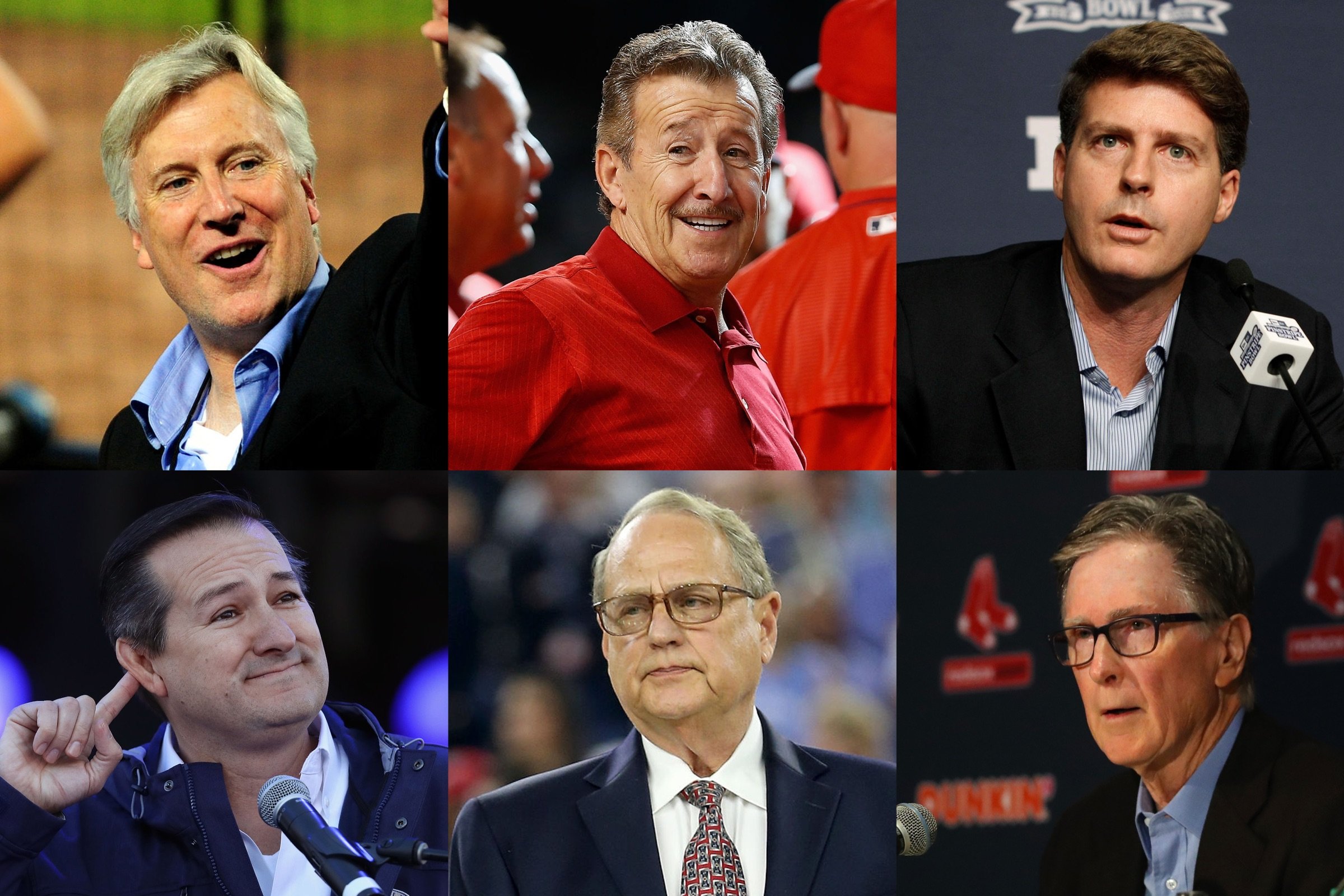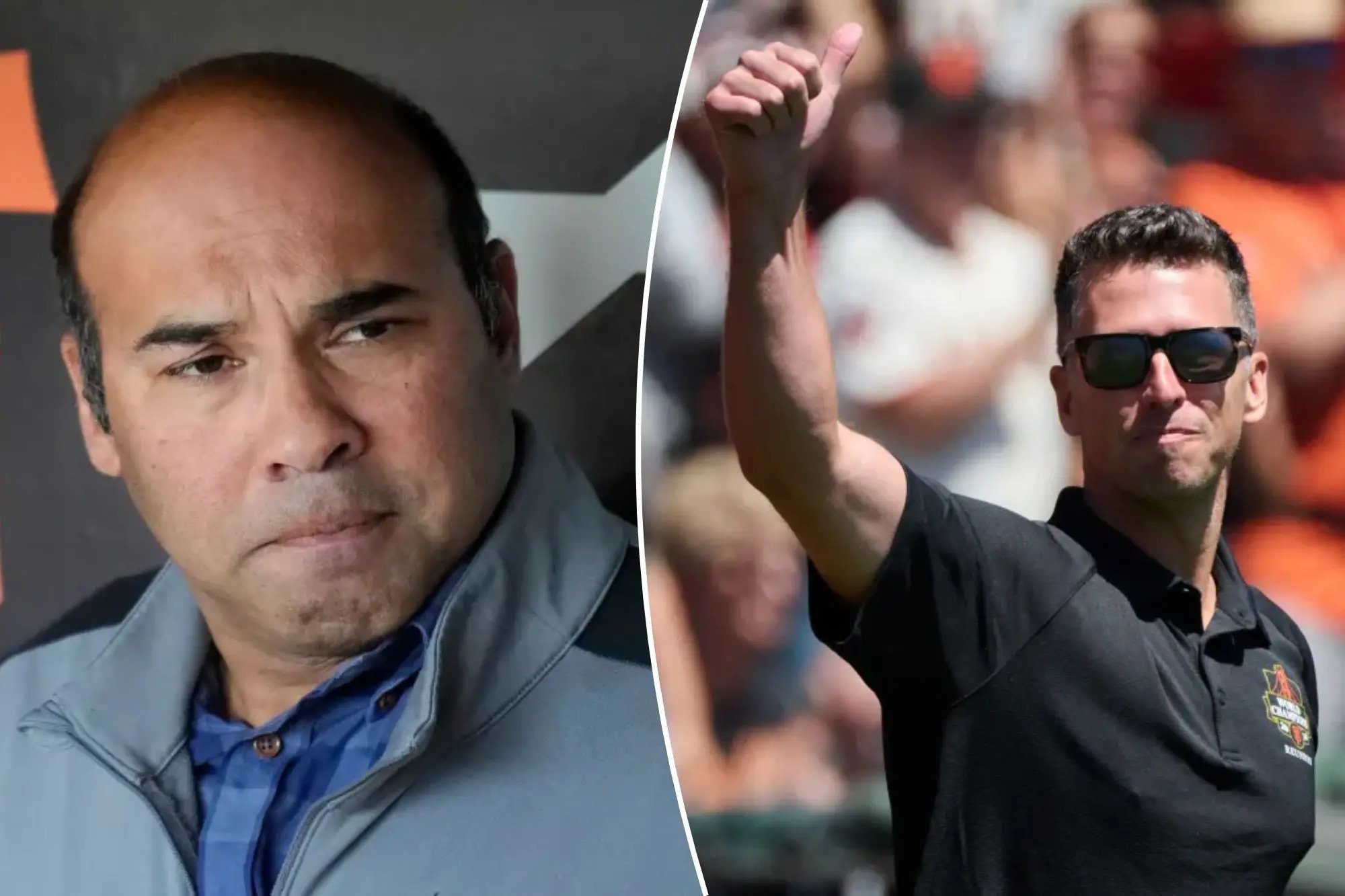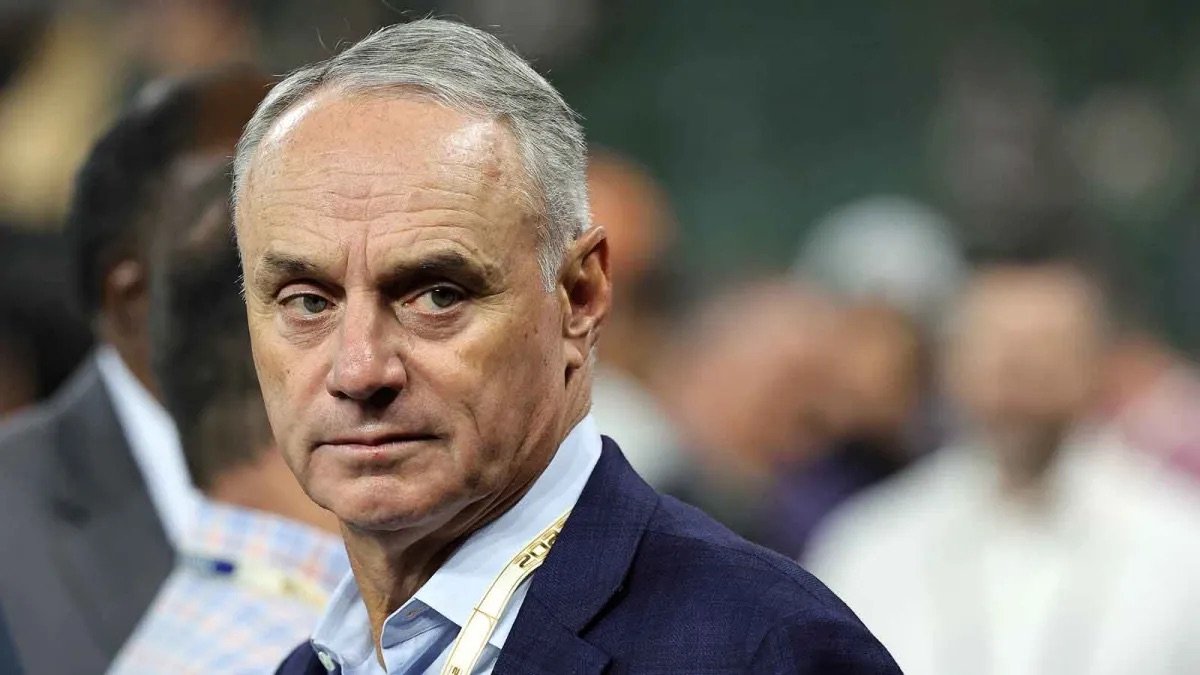MLB’s Diversity Problem: Part I, The Baseball Bourgeoisie
Just a few of the greedy men, hell-bent on ruining the game.
I wasn’t planning on writing this piece until the offseason, especially given the majority of every baseball fan’s attention currently being expended on the playoffs but given the recent hirings of both Buster Posey and Terry Francona, now is as good a time as any. Last week I wrote about the self-inflicted advertising debacle that MLB created for itself and made reference to the reality that most of MLB’s biggest problems are caused by MLB itself. By “MLB” I mean the league in its entirety, an all-encompassing entity that includes the MLB League Office, the owners of the teams, and their front-office personnel. Effectively everyone that runs the league and the teams, “management” in other terms (or “the baseball bourgeoisie” if you prefer a more Marxist lens). This blog, like many that I hope to write, will hopefully show the three of you that read this exactly what I meant about baseball being a backdrop through which we can examine all of the socio-economic struggles that the United States has gone through and continues to go through. Each and every fight for equality, civil rights, and progress has played out in a much smaller way through the game of baseball.
Left, Farhan Zaidi. Right, Buster Posey.
Over the last week or so, this fight for equality played out in the two biggest personnel moves so far since the end of the season. The San Francisco Giants replaced long-time President of Baseball Operations (think CEO) Farhan Zaidi with their former face-of-the-franchise, future Hall of Fame catcher (and MVP, Rookie of the Year, and three-time World Series Champion), Buster Posey. This was followed in short order by the Cincinnati Reds hiring Terry Francona (also a probably Hall of Famer and two-time World Series Champion, though all as a manager) to replace their recently canned skipper, David Bell. In the case of the Giants, they replaced the first Muslim, first Pakistani-American, and first South-Asian American general manager/President of Baseball Operations (POBO) with a white man. Zaidi has degrees from MIT and UC Berkley and was widely respected as one of the best front office executives in baseball. He was replaced by Buster Posey, who is one of my favorite players of all time, but his qualifications are that he played baseball. That is a very old-school approach to the role of POBO, one that goes against the grain in the wrong way. Baseball is not a game of insiders anymore, POBOs are expected to be well versed in analytics, statistics, probability, finance, and business operations. The latter hiring was more of a one-for-one white-guy-for-white-guy hiring. Baseball managers are, unlike POBOs, still expected to be old-school baseball guys—former players who are a little more cerebral than your average ballplayer, but not an economist or financier by trade. They are the ones in the clubhouse responsible for wrangling 26 man-children, it is expected that they have spent considerable time around the game. But even that convention is now falling to the wayside, as Alyssa Nakken has been a regular coach for the Giants for the past few years.
Alyssa Nakken
These promotions are a big deal for two major reasons. The first is that baseball does have a massive diversity problem outside of the player pool. There have been very few executives and managers that are not white and there has only been one executive that wasn’t a man (and one coach who, oddly enough, is part of the Giants’ coaching staff). That is not to say that there aren’t many highly qualified applicants for these jobs. Just last year, the inventor of the high-five (yes, really) and the most successful Black manager in baseball history, Dusty Baker, finally called it quits after a Hall of Fame managing career. Kim Ng, the first female executive of a modern MLB team, was an incredibly successful MLB executive, winning three World Series in the front office of the New York Yankees after helping build their dynasty in the late 1990s. After years of being something of a token interviewee for many teams, she was given the chance to take the reins as GM of the Miami Marlins in 2020. After leading one of the worst teams in baseball to a playoff berth in just her third season—a remarkable turnaround—the Marlins sought to demote her and Ng left the team as a result. And before baseball was (re)integrated, Effa Manley, a Black woman, was a prominent co-owner and executive of the Newark Eagles (a Negro League team). Manley used her positions as co-owner of the team, Treasurer of the Negro National League, and Treasurer of the NAACP to further civil rights and players’ rights. She encouraged and facilitated boycotts in New York to fight segregation, but also worked ardently to ensure that her players were paid well, traveled comfortably, and fought hard to win contemporary recognition of the Negro Leagues as a haven for baseball. But baseball’s bourgeoise has maintained a very white, very male façade and continues to perpetuate an “Old Boys Club” when hiring is concerned. The second problem is that over two decades ago, in 1999, baseball tried to address this problem with something called “the Selig Rule.” Named after the only MLB Commissioner in my lifetime who actually enjoyed the sport of baseball (fight me, Rob Manfred, I dare you), the Selig Rule requires every club to consider minority candidates “for all general manager, assistant general manager, field manager, director of player development, and director of scouting positions,” for the purpose of POBO positions, the Selig rule also applies. In 2021, after two decades of this rule doing almost nothing to meaningfully diversify the upper levels of baseball management, MLB made several changes to the rule that stipulated:
Any club making internal promotions for a senior baseball operations position must provide the Commissioner’s Office with a succession plan for all of the club’s senior baseball operations positions, requiring the club to include diverse individuals for future leadership positions.
In the event of a non-diverse internal promotion, it is the expectation of the Commissioner that a diverse individual will be promoted, or hired, to a vacancy created by the position.
A club must provide the Office of the Commissioner with notice of the internal promotion and the rationale for not conducting an external or internal review process.
Recent hirings, however, have—to quote Jeff Passan, the most well-respected reporter in the game—“hand(ed) important jobs to novice candidates while the commissioner’s office continues to rubber-stamp a systematic snuffing-out of minorities.” While Tito Francona is far from a novice candidate, the Cincinnati Reds—with their own troubling history of racism—seemingly allowed for an open position to be filled without any serious consideration or interview process of any candidates. There was no opportunity for minority candidates to apply, to be given a chance to manage this team. They hand-picked a white guy to replace another white guy and closed the books on the hiring process. This flouts the Selig Rule in spirit and literally. But will the League do anything about it? No. No they will not. Just as they will do nothing to remedy the situation in San Francisco, where a minority POBO was replaced by a white guy with zero experience in the role without interviewing another candidate. Buster Posey was a fantastic baseball player, but he has not had so much as an internship in the front office of any team. The Selig Rule is a sham, MLB has projected itself as a bastion of progressivism and equality for decades while doing quite the opposite right in front of our faces. MLB will, rightfully, celebrate Jackie Robinson Day every year, and will certainly continue to award the Roberto Clemente Award and the Hank Aaron award. But their embrace of those men and their legacies are celebrated against a backdrop that their presence in the game was only begrudgingly accepted at best, though many in the game actively opposed their inclusion even years after their careers ended. If you doubt that contention, you should visit the Wikipedia page of Marge Schott, who was allowed to own the Cincinnati Reds (one of the teams whose hiring decisions preempted this article) until 1999 despite being a racist, Nazi-sympathizer. She only sold the team after her second suspension from MLB following her public praise of Adolf Hitler. That might sound like a joke, but it is not.
Effa Manley.
Baseball, like the United States, has a long and profound history of racism and sexism. Like the United States, neither story is complete—or really, even close to their end. Racism and sexism remain alive and well in both contexts. Baseball has an uncanny ability to reflect the narratives that exist within the broader American experience. We are currently in the midst of the third Presidential election in my lifetime that has been dubbed “The Most Important Election in American History” and a ticket of white supremacists—who have praised avowed racists while demonizing Black and brown people and promising to complete their crusade of stripping rights from women (and really everyone who is not a cisgender, straight, white man)—is facing off against a Black woman. The intentional preservation of white supremacy in our politics and our sports will eventually lead to the crumbling of our institutions. The United States Senate is a group of old, white, wealthy men who have proved time and time again that they are concerned not with the people that they are elected to represent, but with their own bank accounts and the financial interest of their billionaire donors. They have enabled the man who has brought the United States to the brink of authoritarian rule and lack the courage to do what is right.
In this analogy, Rob Manfred is the President overseeing a Senate made up of the old, white, wealthy men who will do everything they can to preserve their perch atop society. Including ensuring those without power remain without power. The American political system and MLB have intentionally kept minorities and women out of any positions of even relative power. To the extent that those opportunities have been extended, they have seen the tokenization of human beings for the purpose of pretending that we value equality.
I’m sure some of you will claim that I am asserting that every open position must be remedied by a “diversity hire.” That is not what I am saying at all. What I am saying is that there needs to be a meaningful level of equality as a legitimate goal of our institutions. When the people at the top are predominantly one race, one gender, and one sexual orientation, we will necessarily preserve the subjugation of those who do not meet those demographic requirements. Any facet of society that counts among its principles the eschewing of diversity in favor of discrimination should be viewed as antithetical to the mission of our experience as humans, let alone as our shared experience as Americans.
I hate you, Rob Manfred. I really do.
If baseball, and the United States, are to become healthy, functioning institutions (because by any definition, neither can currently be called “healthy”), the recognition and alleviation of the current states of inequality are of the utmost import. In my wildest dreams, baseball is a game that welcomes everyone, and America is a country that truly lives up to the values that we claim to profess. Until that day, we must point out when our leaders and the guardians of our institutions do not live up to the promises that they have made to us and the promises that undergird our collective expectations of them. Just as we should all be righteously furious at the lack of diversity in a political system that professes to be representative of our melting-pot of a nation, we should be upset with MLB for lying to our faces about their own efforts to increase diversity (though to a significantly lesser extent than the example about our political system). This will not be the last time I address the issue of diversity in MLB. I plan to write two more pieces, addressing the decreasing diversity of the professional player population, and a third addressing the same trend in amateur baseball.




